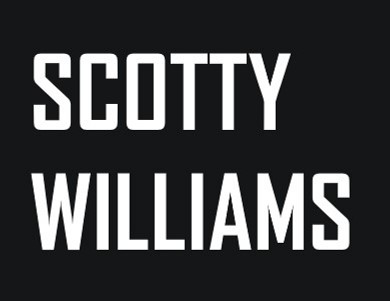The Creole Collection
Odes to ancestral childhood
The Creole Collection is a series of poems in honor of Louisiana’s slave children. Each poem is inspired by the life of real enslaved children who were featured in Harper’s Weekly Magazine in 1864.
Passe Blanc (Pass For White)
I wrote this poem after hearing the story of a dark-skinned Creole boy and a light-skinned Creole girl from my home parish in Louisiana. They were the best of friends through childhood and adolescence until the girl, in response to the boy’s marriage proposal, chose to leave their town and go "Passe Blanc" (pass for White).
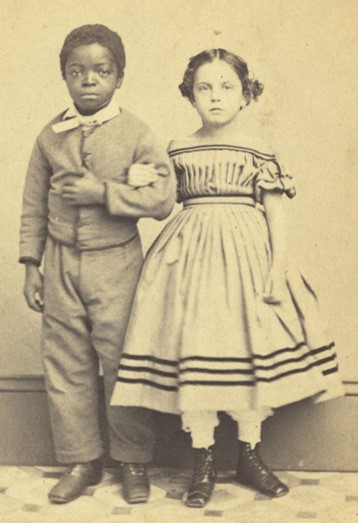
Not long ago I walked with you on edge of childhood dream.
Behind the willow tree we stood young friends about sixteen.
Why do you turn from me Catin [doll]? Why do you look away?
Is it my skin as dark as night? Not fit for you as light as day?
Move mountain for you that I would; move ocean, sea, and tide.
Write your name in the stars I would, and in your heart abide.
As moon to sun I am to you, without me incomplete.
As sun to moon you are to me, your radiant beams so sweet.
See and love my skin so dark, cherish this mortal frame.
For like your frame so light and fair, from God Himself mine came.
Look not beyond Sha [dear] what I am, and see a kindred soul.
The colorblind see what they wish, and I am left unwhole.
Tis not a waste to love you, tis not a hopeless endeavor.
I vowed to you my faithful heart, and bound it up with fetters.
Walls of partition strong and still, and built by those depraved.
They look upon my kind and kill, not wishing to be saved.
Why do you flinch when I draw near?
Why does my blackness bring you fear?
Was I not your dearest friend once upon a childhood dream, where I was coffee and you were creme?
You who I dreamed to caress and undress, and love with a tenderness within a union God had blessed.
Wé, Lami [Yes, my friend] our dream is past, yet I keep on dreaming.
Dreaming of us at the pond, watching moonlight gleaming.
Dreaming of a love which the hateful cannot sway.
In love we’ll be together….
But never….
This way.
Le Bâtard (The Bastard)
Some of my ancestors were the illegitimate biracial children of European planters in south Louisiana. Many of them looked White, but were often claimed by Black stepfathers. This poem is a biracial boy's tribute to the stepfather who raised him.
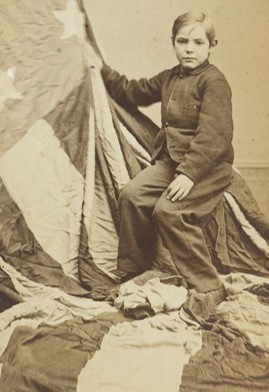
I am no son of princes, but cutters of the cane.
The Mighty Ones with fingers sweet and sceptre from a blade.
The Noblemen with presses high and rugged feet their cart.
And to the eye their realms unseen, while shining in the heart.
O Father, come and hear this child who knows the story well.
Of awful days where you would rage as Mother would not tell.
The things that she endured for me and all my bastard kin.
The work that made her mockery by saints who call it sin.
For us our Mother gaily danced with clouds in earthly halls.
Like those who sailed across the sea between the cabin’s walls.
With hoisted skirt and curtsy low to bear the serpent’s kisses.
And lift us high from hell below to know of heaven’s blisses.
Yet as we flew, your blistered hands held back the boiling rage.
With hopelessness for love you lost and failures on a page.
“Behold”, it reads to broken men, “The writings on the wall.
From cabins gone across the sea to steps within the hall.”
For us our Mother heard the tune and danced away from home.
To waltz upon a wealthy street that you could never roam.
In cottages, beyond the fields she tasted privilege sweet.
While you remained with sugared burns and poverty’s deceit.
Yet even still, you knew the day when Mother would return.
In finery with progeny which clouds had come to spurn.
And powerless you swallowed pride to help the tumult pass.
For what was lost was found to you, but never whole at last.
You drank it deep from humble’s well to take me as your own.
And claimed me for your progeny despite your righteous groans.
It mattered not the mix of blood while Mother served as mistress.
For Gracious Kings, they can forgive and build up broken fences.
So by your hands I stand absolved and look upon the blade.
And sit upon the presses high with rugged feet unswayed.
I claim your kingdom as my own, and treasure all its glimpses.
To cry aloud through then and now, “I am no son of princes.”
Le Garde (The Keeper)
To survive the racial climate of Louisiana’s past, some free Black women entered a system called “plaçage”. This was a civil union with a wealthy White man, and the woman's family would benefit from the privileges and protection that it brought to them. This poem is the story of a girl whose family is grooming her for plaçage, and her feelings about the practice as she thinks about the future.
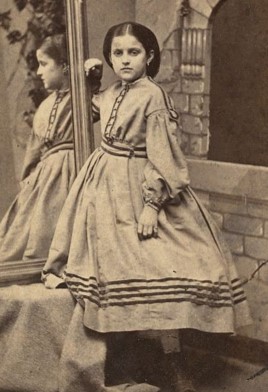
“You are yo family’s Keepa chile”, the charge from Mo Granmè [my Grandmother],
While combing out my auborn locks unlike her snowy hair.
“De balance be against us now, and poupé [darling] dis you know.
Like how dey talk at marketplace and everywhere you go.”
I walk like them, but people think my Mama is my maid.
And talk like them, but whispers say my Brother is my page.
And then my Papa drinks like fish to drown away the truth.
And by his absence says to me, “There’s nothing I can do.”
“You are yo family’s Keepa chile”, she holds the dress I’ll wear.
The legacy of our poor house from other ones so fair.
It’s hard to be the future hope wrapped up in present dreams
And tied down with a cry of yore from kindly hearts deceived.
My Mama hopes to leave the wash.
My Brother dreams to leave the work.
My Papa cries to leave the waste, and come back to his rightful place.
And how I wish that they would be for me a Holy Trinity,
A balance for the broken scale that destines me for future sale.
“You are yo family’s Keepa chile”, she clasps the pearls I’ll wear.
But I care not for Granmè’s voice or see her gentle stare.
I care not for the man she’ll coax to offer me the world.
For how I wish that I’ll be kept as daughter……sister…….girl.
Gloire (Glory)
Following the Civil War, many emancipated Black-Creole slaves from south Louisiana converted to the Baptist faith. Some also, like my family, intermarried with former slaves from the State's Anglo-Protestant parishes and took English surnames. This poem is written to honor the Protestant Black-Creole line, and is based on an old Black Baptist hymn titled, “Walk This Road To Glory”.
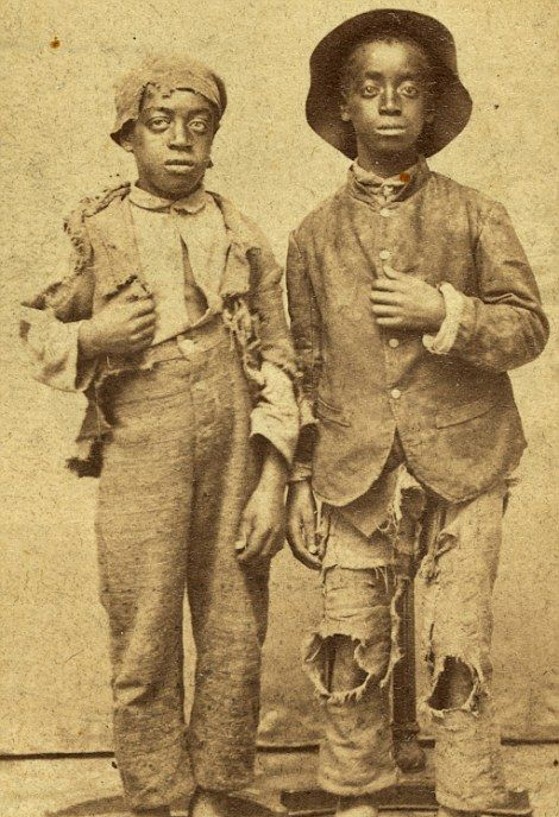
We walk this road to glory now, my Lawd [Lord] and you and I,
And shout to tell a story that is not so by and by.
A story more than sorrow’s sigh in rain and shine and sleet
With warming joys that now foretell the treasures we would keep.
We’d keep our songs in chainy rags while tillers of the soil,
And keep our play and happiness through sunup sundown toil.
We’d keep our taste for finer things at troughs with umble mush,
And hold our lowly heads up high through captor’s whip and crush.
We’d keep our smell despite the stench of indigo we stirred,
And keep our sight in rising fumes that made our visions blurred.
We’d keep our mother knowing not what she would come to be,
And hope with father waits for us on coasts of liberty.
We’d keep on hearing pleasant sounds with open ears that weep,
And keep the words of blessed hope from Elders who now sleep.
We’d keep the maps they drew for us that spoke of hidden trains,
And follow them across sea from island to the main.
We’d keep the news of battles won and bondage obsolete,
And keep our shoes to board the boat with nothing on our feet,
We’d keep our peace on waters rough and there our visions cast,
And calm them saying, “Peace, be still!…..Together!……FREE AT LAST!”
Indeed we walk a splendid road, my Lawd, and you, and I,
For we are not the victims of a dark and changeless sky,
We are from those who made it out to smile at troubles gone,
And to the ones we’ve left behind, for them we shall go on.
Trois Souers (Three Sisters)
Due to their mixed ancestry, many Black-Creole families (and Black American families in general) have a variety of skin tones. Quite often those who were lighter went chose to pass for White and distanced themselves from their darker relatives. Nevertheless, many families resisted letting skin tones tear them apart, and proudly stayed together. This poem is a tribute to the families that resisted, and tells the story of three sisters who claimed each other in life and death.
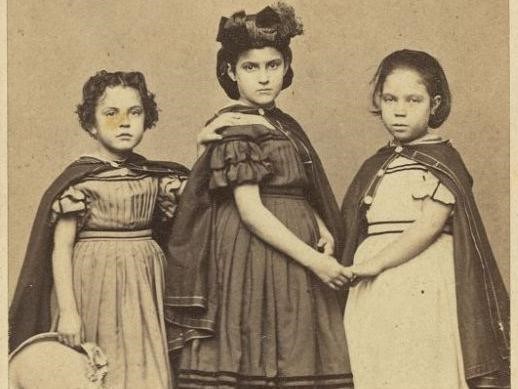
We sisters three speak out from death as echoes of the past.
In childhood form when we were young together holding fast.
We speak to you with bones enfleshed alive before the grave
While ours are piles of ash and dust in tombs that bear our names.
As children we went hand and hand through alleyways and streets
Our mother’s pride and father’s joy with suede upon our feet.
With little care that each our shades were many worlds apart.
Our mother bole, our father bronze, and shine they did impart.
Amitié [love] it was shined on us, and this the oldest took.
She cared not what the doctor said nor wrote within his book.
She let it grow and gleam in her, a care our parents sowed,
And in the end, she offered care and built a happy home.
Espoir [hope] it shined on us as well, and this the middle took.
She cared not what the teacher said nor wrote within her book.
She let it glisten in her hands, a dream our parents cast,
And in the end, she took her dreams and watched her vision pass.
Confiance [faith] the last to shine, and this the youngest took.
She cared not what the clergy said nor wrote within their books.
She let it sparkle when she spoke, a trust our parents had,
And in the end, she trusted self and God Who made her glad.
When those who brought us in this world had come to breath their last,
We three remained, despite the grief, as grownups holding fast,
And though our bones be ash and dust, we still remain for you.
To speak in death a word of life; a charge of timeless truth.
Care as we cared….
Dream as we dreamed….
Trust as we trusted….
And you will find….
The sun which led us leading you
Through the days and nights of can’t get through,
Through the months and years till all is through.
To the place where we will welcome you.
A place where you can breath and rest
Till the breath returns and within your chest
And you rise from ashes bones enfleshed
While the dregs dry up in cup of death.
But until then we sisters three await you in the grave
And whisper loud as piles of dust in tombs that bear our names
Amitié, Espoir, et Confiance
Call us and we shall hear
And shine on you faith, hope, and love
Take up our lights and live.
Présent et Passé (Present and Past)
Slavery took many children from their families, and left them without the guidance and protection of their parents. As a result these boys and girls had to parent themselves, and after entering adulthood they struggled with deep traumas and a constant sense of abandonment. This poem shows a Freedman trying to face these childhood issues by talking to his former unemancipated self. He speaks in an old Black dialect from North Louisiana, and he offers a powerful hope to his past from an abundant and joyful present.
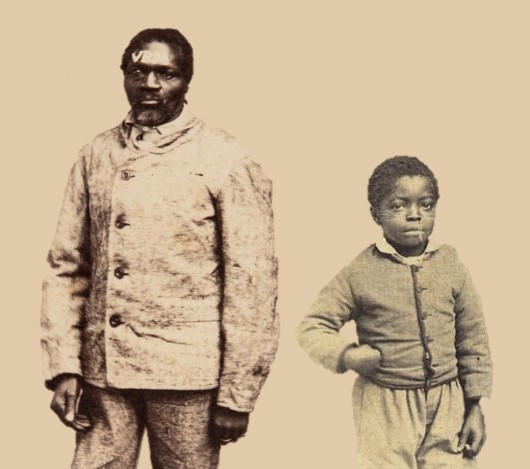
(DIALECT)
To de lil boy I was befo,
You gone be awright.
Doh yuh stomach growl, yea mo it scream, from empty supp at night
A supp uh roasts dat ain’t got flesh, de trimmings, an de bones
Wid potage beans uh simple wish from tiny lips dat groan.
Dese groans be yuhs from ripened fruit imagined on de vine.
Dey pressed fo juice by heavy dreams uh better dayz sublime.
You see, I kno yuh worries boy and whispas uh concern
An unnerstan de flurry bearin tings no chile should learn.
No chile should entuh hard knock school, but propa school at play.
An none yuh age should hear de streets, but Pedagogues dat say,
“Siddown an dream, you got de mind. Come on, you got de heart.
Siddown an rest, you earn it chile. Come take dis here yuh start.”
Siddown ol self, resist de lie from tongues dat speak attack
An break you down wid defamations guise as troot in Black.
Come stan behind de Fewchuh Self, who know de road ahead
An see dis worl is mo dan White and findin daily bread.
Dis worl is meant and made fo you!
Dis voice uh mine will guide you troo!
Fo I done tol dem stay from you
Who bear de shade wid no excuse.
O lil boy I was befo,
You gone be awright.
You got it good from where I sit wid stomach full at night,
No mo to growl.
No mo to scream,
No mo to groan.
But sang and dream.
And sang you will as sang you do,
For here I sang and talk to you.
(TRANSLATION)
To the little boy I was before,
You will be alight.
Though your stomach growls, yea more it screams, from empty supp at night
A supp of roasts devoid of flesh, its trimmings, and the bones
With potage beans of simple wish from tiny lips that groan.
These groans are yours from ripened fruit imagined on the vine.
They are pressed for juice by heavy dreams of better days sublime.
You see, I know your worries boy and whispers of concern
An understand the flurry bearing things no child should learn.
No child should enter hard knock school, but proper school at play.
And none your age should hear the streets, but Pedagogues that say,
“Sit down and dream, you have de mind. Come on, you have the heart.
Sit down and rest, you earned it child. Come take this here your start.”
Sit down old self, resist the lie from tongues that speak attack
And break you down with defamations guised as truth in Black.
Come stand behind the Future Self, who knows the road ahead
Ans see this world is more than White and finding daily bread.
This world is meant and made for you!
This voice of mine will guide you through!
For I have told them stay from you
Who bear the shade with no excuse.
O little boy I was before,
You will be alright.
You have it good from where I sit with stomach full at night,
No more to growl.
No more to scream,
No more to groan.
But sing and dream.
And sing you will as sing you do,
For here I sing and talk to you.
These poems are © Scotty J. Williams
